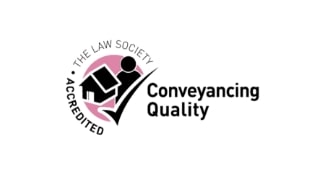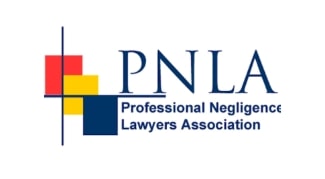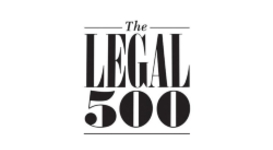Will Validity Disputes
Will validity disputes arise when there are concerns about the legal standing of a will. These disputes can be complex and emotionally challenging. At Lennons Solicitors, we have extensive experience in handling various types of will validity cases.
Types of Will Validity Cases
There are several grounds on which a will’s validity can be challenged:
1. Lack of Testamentary Capacity
Testamentary capacity refers to the mental ability of the person making the will (the testator) to understand and approve its contents. A person must:
- Understand they are making a will and its effects
- Know the extent of their property and assets
- Comprehend and appreciate the claims of those who might expect to benefit from their will
1.1 How is lack of testamentary capacity proven?
Proving lack of capacity often involves gathering medical evidence, witness statements from those who knew the testator, and potentially expert opinions from medical professionals. We can guide you through this process and help assess the strength of your case.
1.2 Can I challenge a will if the testator had dementia?
Yes, you can potentially challenge a will if the testator had dementia, but it’s not automatic grounds for invalidation. The key is whether the testator had testamentary capacity at the specific time the will was made. Even if someone has been diagnosed with dementia, they may have periods of lucidity during which they can make valid decisions. To challenge on these grounds, you would need to provide evidence that the dementia had progressed to a point where the testator lacked the necessary capacity to understand the nature and effect of making a will, the extent of their property, or the claims of potential beneficiaries. This often requires careful assessment of medical records and potentially expert evidence from the time the will was made.
2. Undue Influence and Fraudulent Calumny
This occurs when someone has pressured the testator into making or changing their will against their true wishes. A related concept is fraudulent calumny.
2.1 What constitutes undue influence?
Undue influence goes beyond mere persuasion. It involves coercion that overpowers the testator’s free will. This can be challenging to prove as it often occurs behind closed doors. We can help you identify potential evidence and build a case if you suspect undue influence.
2.2 What is fraudulent calumny and how does it differ from undue influence?
Fraudulent calumny occurs when someone poisons the testator’s mind against an individual who would otherwise be a likely beneficiary, through lies or misrepresentations. Unlike undue influence, which involves direct pressure on the testator, fraudulent calumny indirectly affects the testator’s decisions by manipulating their perceptions of potential beneficiaries.
2.3 What signs might indicate that a will was made under undue influence?
Several signs might suggest that a will was made under undue influence:
- Sudden changes to the will, especially near the end of the testator’s life
- Unexplained exclusion of close family members
- A beneficiary who had a position of trust or power over the testator (e.g., a caregiver)
- The testator’s increased isolation from family and friends
- Evidence of the testator’s vulnerability (e.g., illness, dependency, or diminished capacity)
- Involvement of a beneficiary in the will-making process
- Provisions in the will that seem out of character for the testator
If you notice these signs, it might be worth investigating further. However, it’s important to note that proving undue influence can be challenging, as it often occurs behind closed doors. Our team can help you gather and assess evidence to determine if you have grounds for a challenge based on undue influence.
3. Lack of Knowledge and Approval
The testator must have known and approved the contents of their will for it to be valid.
3.1 How does lack of knowledge and approval differ from lack of capacity?
While related, these are distinct grounds. A person might have the capacity to make a will but not actually know or approve its contents, perhaps due to deception or mistake. We can help you understand if this ground applies to your situation.
3.2 What circumstances might raise suspicions about knowledge and approval?
Several circumstances might raise suspicions:
- The will was prepared by someone who benefits substantially from it
- The testator had a disability that affected their ability to read or understand the will
- The will’s contents are unexpected or seem out of character for the testator
- The will was signed when the testator was very ill or close to death. In these cases, additional evidence may be required to prove the testator knew and approved the will’s contents.
4. Improper Execution
The testator must have known and approved the contents of their will for it to be valid.
4.1 What are the legal requirements for executing a will in England and Wales?
The will must be in writing, signed by the testator (or by someone else in their presence and at their direction), and the signature must be made or acknowledged in the presence of at least two witnesses who also sign the will. We can review the will in question to determine if it meets these requirements.
4.2 Can a beneficiary witness a will?
While a beneficiary can technically witness a will, doing so invalidates any gift to that beneficiary in the will. It’s always best to have independent witnesses who are not beneficiaries to avoid any potential issues or conflicts of interest.
5. Forgery or Fraud
This involves cases where the will or signature has been forged, or where the testator has been deceived about the contents or nature of the document they’re signing.
5.1 How is forgery or fraud in a will proven?
Proving forgery or fraud may involve handwriting analysis, forensic document examination, and gathering evidence of any deceptive practices. Our team can help coordinate these efforts and build a strong case.
5.2 What are some warning signs of a potentially forged will?
Some potential warning signs of a forged will include:
- Sudden appearance of a new will, especially close to the testator’s death
- Signatures that look different from the testator’s known signature
- Use of language or terms that seem uncharacteristic of the testator
- Beneficiaries who were previously unknown or had little connection to the testator
- Exclusion of close family members without clear explanation
If you notice any of these signs, it’s important to seek legal advice promptly.
The Will Validity Dispute Process
What is the process for challenging a will’s validity?
The process typically involves:
- Initial investigation and evidence gathering
- Lodging a caveat to prevent probate
- Negotiation or mediation attempts
- Court proceedings if necessary
We guide our clients through each step, always aiming for the most efficient and cost-effective resolution.
Is there a time limit for challenging a will?
The timing of a will challenge is crucial:
- Before probate is granted: This is generally the most straightforward time to challenge a will.
- Within 6 months of probate: Claims under the Inheritance (Provision for Family and Dependants) Act 1975 must typically be brought within this timeframe.
- Up to 12 years: For most other types of claims, there’s a longstop date of 12 years from the date of death.
However, it’s always best to act as soon as possible. Delays can complicate the process and potentially weaken your case. We recommend seeking legal advice immediately if you have concerns about a will’s validity.
Do all will disputes go to court?
No, not all will disputes end up in court. Many cases are resolved through negotiation or mediation without the need for court proceedings. At Lennons Solicitors, we always explore these alternative dispute resolution methods first, as they can be less costly, less time-consuming, and less stressful than going to court. However, if an agreement cannot be reached, we are fully prepared to represent you in court proceedings.
What are the costs involved in challenging a will?
The costs of challenging a will can vary significantly depending on the complexity of the case and how far the dispute progresses. Factors affecting the cost include:
- The amount of evidence that needs to be gathered
- Whether expert witnesses are required
- If the case goes to court or is settled out of court
At Lennons Solicitors, we believe in transparency about costs. We offer a range of funding options, including fixed fees for certain services, hourly rates, and in some cases, conditional fee agreements. We’ll discuss costs upfront and keep you informed throughout the process. In some situations, costs may be recoverable from the estate or the other party.
Advice for Executors Facing a Claim
If you’re an executor and someone is challenging the validity of the will, it’s important to understand your role and responsibilities:
What should I do as an executor if someone challenges the will?
As an executor, your primary duty is to administer the estate according to the law and the terms of the will. If the will is challenged:
- Remain neutral: You should not take sides in the dispute.
- Preserve the estate: Ensure that no assets are distributed until the dispute is resolved.
- Seek legal advice: It’s crucial to get professional guidance to ensure you’re fulfilling your duties correctly.
- Communicate with beneficiaries: Keep all potential beneficiaries informed about the situation, but avoid discussing the merits of the claim.
- Consider mediation: Encourage parties to consider mediation as a way to resolve the dispute.
Can I use estate funds to defend a will challenge?
As an executor, you may be able to use estate funds to defend a will challenge, but this should be done cautiously and only after seeking legal advice. The court expects executors to take a neutral stance unless there are strong reasons to defend the will actively.
What if I’m both an executor and a beneficiary?
A: If you’re both an executor and a beneficiary, you need to be particularly careful to separate these roles. You may need to step down as executor if your interests as a beneficiary conflict with your duties as an executor. Seeking early legal advice is crucial in this situation.
Why Choose Lennons Solicitors for Contentious Probate Disputes?
At Lennons Solicitors, our contentious probate team, led by Marcella Cox, offers:
- Extensive experience in all types of contentious probate disputes
- Personalised strategies tailored to your unique situation
- Clear communication, explaining complex legal concepts in plain English
- A focus on efficient resolution, minimising stress and costs where possible
- Transparent fee structures and flexible funding arrangements
Whether you’re considering challenging a will’s validity or you’re an executor facing a challenge, our team has the knowledge and experience to guide you through the process.
We can speak in a way that is most convenient to you, by telephone, video meeting or in person. Talk to our friendly, experienced litigation solicitors in Buckinghamshire and Hertfordshire today.
How we can help with personal dispute resolution…
Related Articles linked to Dispute Resolution…
To claim compensation for your loss... read more
Tags: Dispute Resolution Business/Dispute Resolution Personal/professional negligence/litigation/professional adviser/loss and damages
To show that your adviser has... read more
Tags: Dispute Resolution Business/Dispute Resolution Personal/professional negligence/litigation/professional adviser/loss and damages















































